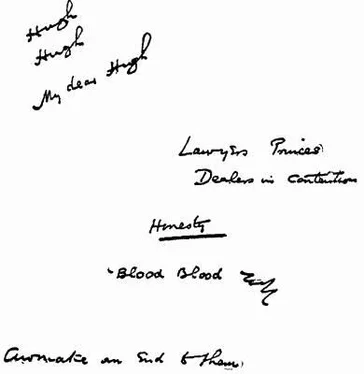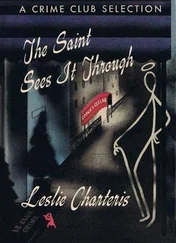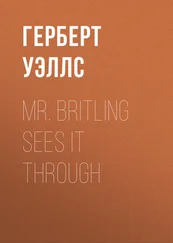Herbert Wells - Mr. Britling Sees It Through
Здесь есть возможность читать онлайн «Herbert Wells - Mr. Britling Sees It Through» весь текст электронной книги совершенно бесплатно (целиком полную версию без сокращений). В некоторых случаях можно слушать аудио, скачать через торрент в формате fb2 и присутствует краткое содержание. Жанр: Классическая проза, на английском языке. Описание произведения, (предисловие) а так же отзывы посетителей доступны на портале библиотеки ЛибКат.
- Название:Mr. Britling Sees It Through
- Автор:
- Жанр:
- Год:неизвестен
- ISBN:нет данных
- Рейтинг книги:4 / 5. Голосов: 1
-
Избранное:Добавить в избранное
- Отзывы:
-
Ваша оценка:
- 80
- 1
- 2
- 3
- 4
- 5
Mr. Britling Sees It Through: краткое содержание, описание и аннотация
Предлагаем к чтению аннотацию, описание, краткое содержание или предисловие (зависит от того, что написал сам автор книги «Mr. Britling Sees It Through»). Если вы не нашли необходимую информацию о книге — напишите в комментариях, мы постараемся отыскать её.
Mr. Britling Sees It Through — читать онлайн бесплатно полную книгу (весь текст) целиком
Ниже представлен текст книги, разбитый по страницам. Система сохранения места последней прочитанной страницы, позволяет с удобством читать онлайн бесплатно книгу «Mr. Britling Sees It Through», без необходимости каждый раз заново искать на чём Вы остановились. Поставьте закладку, и сможете в любой момент перейти на страницу, на которой закончили чтение.
Интервал:
Закладка:
One Saturday afternoon Mr. Britling found himself with Mrs. Britling at Claverings. Lady Homartyn was in mourning for her two nephews, the Glassington boys, who had both been killed, one in Flanders, the other in Gallipoli. Raeburn was there too, despondent and tired-looking. There were three young men in khaki, one with the red of a staff officer; there were two or three women whom Mr. Britling had not met before, and Miss Sharsper the novelist, fresh from nursing experience among the convalescents in the south of France. But he was disgusted to find that the gathering was dominated by his old antagonist, Lady Frensham, unsubdued, unaltered, rampant over them all, arrogant, impudent, insulting. She was in mourning, she had the most splendid black furs Mr. Britling had ever seen; her large triumphant profile came out of them like the head of a vulture out of its ruff; her elder brother was a wounded prisoner in Germany, her second was dead; it would seem that hers were the only sacrifices the war had yet extorted from any one. She spoke as though it gave her the sole right to criticise the war or claim compensation for the war.
Her incurable propensity to split the country, to make mischievous accusations against classes and districts and public servants, was having full play. She did her best to provoke Mr. Britling into a dispute, and throw some sort of imputation upon his patriotism as distinguished from her own noisy and intolerant conceptions of "loyalty."
She tried him first with conscription. She threw out insults at the shirkers and the "funk classes." All the middle-class people clung on to their wretched little businesses, made any sort of excuse....
Mr. Britling was stung to defend them. "A business," he said acidly, "isn't like land, which waits and grows rich for its owner. And these people can't leave ferrety little agents behind them when they go off to serve. Tens of thousands of middle-class men have ruined themselves and flung away every prospect they had in the world to go to this war."
"And scores of thousands haven't!" said Lady Frensham. "They are the men I'm thinking of."...
Mr. Britling ran through a little list of aristocratic stay-at-homes that began with a duke.
"And not a soul speaks to them in consequence," she said.
She shifted her attack to the Labour people. They would rather see the country defeated than submit to a little discipline.
"Because they have no faith in the house of lawyers or the house of landlords," said Mr. Britling. "Who can blame them?"
She proceeded to tell everybody what she would do with strikers. She would give them "short shrift." She would give them a taste of the Prussian way—homoeopathic treatment. "But of course old vote-catching Asquith daren't—he daren't!" Mr. Britling opened his mouth and said nothing; he was silenced. The men in khaki listened respectfully but ambiguously; one of the younger ladies it seemed was entirely of Lady Frensham's way of thinking, and anxious to show it. The good lady having now got her hands upon the Cabinet proceeded to deal faithfully with its two-and-twenty members. Winston Churchill had overridden Lord Fisher upon the question of Gallipoli, and incurred terrible responsibilities. Lord Haldane—she called him "Tubby Haldane"—was a convicted traitor. "The man's a German out and out. Oh! what if he hasn't a drop of German blood in his veins? He's a German by choice—which is worse."
"I thought he had a certain capacity for organisation," said Mr. Britling.
"We don't want his organisation, and we don't want him ," said Lady Frensham.
Mr. Britling pleaded for particulars of the late Lord Chancellor's treasons. There were no particulars. It was just an idea the good lady had got into her head, that had got into a number of accessible heads. There was only one strong man in all the country now, Lady Frensham insisted. That was Sir Edward Carson.
Mr. Britling jumped in his chair.
"But has he ever done anything?" he cried, "except embitter Ireland?"
Lady Frensham did not hear that question. She pursued her glorious theme. Lloyd George, who had once been worthy only of the gallows, was now the sole minister fit to put beside her hero. He had won her heart by his condemnation of the working man. He was the one man who was not afraid to speak out, to tell them they drank, to tell them they shirked and loafed, to tell them plainly that if defeat came to this country the blame would fall upon them !
" No! " cried Mr. Britling.
"Yes," said Lady Frensham. "Upon them and those who have flattered and misled them...."
And so on....
It presently became necessary for Lady Homartyn to rescue Mr. Britling from the great lady's patriotic tramplings. He found himself drifting into the autumnal garden—the show of dahlias had never been so wonderful—in the company of Raeburn and the staff officer and a small woman who was presently discovered to be remarkably well-informed. They were all despondent. "I think all this promiscuous blaming of people is quite the worst—and most ominous—thing about us just now," said Mr. Britling after the restful pause that followed the departure from the presence of Lady Frensham.
"It goes on everywhere," said the staff officer.
"Is it really—honest?" said Mr. Britling.
Raeburn, after reflection, decided to answer. "As far as it is stupid, yes. There's a lot of blame coming; there's bound to be a day of reckoning, and I suppose we've all got an instinctive disposition to find a scapegoat for our common sins. The Tory press is pretty rotten, and there's a strong element of mere personal spite—in the Churchill attacks for example. Personal jealousy probably. Our 'old families' seem to have got vulgar-spirited imperceptibly—in a generation or so. They quarrel and shirk and lay blame exactly as bad servants do—and things are still far too much in their hands. Things are getting muffed, there can be no doubt about that—not fatally, but still rather seriously. And the government—it was human before the war, and we've added no archangels. There's muddle. There's mutual suspicion. You never know what newspaper office Lloyd George won't be in touch with next. He's honest and patriotic and energetic, but he's mortally afraid of old women and class intrigues. He doesn't know where to get his backing. He's got all a labour member's terror of the dagger at his back. There's a lack of nerve, too, in getting rid of prominent officers—who have friends."
The staff officer nodded.
"Northcliffe seems to me to have a case," said Mr. Britling. "Every one abuses him."
"I'd stop his Daily Mail ," said Raeburn. "I'd leave The Times , but I'd stop the Daily Mail on the score of its placards alone. It overdoes Northcliffe. It translates him into the shrieks and yells of underlings. The plain fact is that Northcliffe is scared out of his wits by German efficiency—and in war time when a man is scared out of his wits, whether he is honest or not, you put his head in a bag or hold a pistol to it to calm him.... What is the good of all this clamouring for a change of government? We haven't a change of government. It's like telling a tramp to get a change of linen. Our men, all our public men, are second-rate men, with the habits of advocates. There is nothing masterful in their minds. How can you expect the system to produce anything else? But they are doing as well as they can, and there is no way of putting in any one else now, and there you are."
"Meanwhile," said Mr. Britling, "our boys—get killed."
"They'd get killed all the more if you had—let us say—Carson and Lloyd George and Northcliffe and Lady Frensham, with, I suppose, Austin Harrison and Horatio Bottomley thrown in—as a Strong Silent Government.... I'd rather have Northcliffe as dictator than that.... We can't suddenly go back on the past and alter our type. We didn't listen to Matthew Arnold. We've never thoroughly turned out and cleaned up our higher schools. We've resisted instruction. We've preferred to maintain our national luxuries of a bench of bishops and party politics. And compulsory Greek and the university sneer. And Lady Frensham. And all that sort of thing. And here we are!... Well, damn it, we're in for it now; we've got to plough through with it—with what we have—as what we are."
Читать дальшеИнтервал:
Закладка:
Похожие книги на «Mr. Britling Sees It Through»
Представляем Вашему вниманию похожие книги на «Mr. Britling Sees It Through» списком для выбора. Мы отобрали схожую по названию и смыслу литературу в надежде предоставить читателям больше вариантов отыскать новые, интересные, ещё непрочитанные произведения.
Обсуждение, отзывы о книге «Mr. Britling Sees It Through» и просто собственные мнения читателей. Оставьте ваши комментарии, напишите, что Вы думаете о произведении, его смысле или главных героях. Укажите что конкретно понравилось, а что нет, и почему Вы так считаете.






